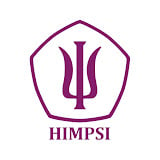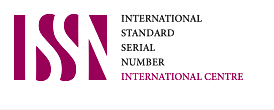Financial Toxicity and Coping Strategies in Workers with Chronic Illnesses
Abstract
Keywords
Full Text:
PDFReferences
Adams, M. L. (2017). Differences between younger and older US adults with multiple chronic conditions. Preventing Chronic Disease, 14. http://dx.doi.org/doi: 10.5888/pcd14.160613
Altice, C. K., Banegas, M. P., Tucker-Seeley, R. D., & Yabroff, K. R. (2016). Financial Hardships Experienced by Cancer Survivors: A Systematic Review. J Natl Cancer Inst. http://dx.doi.org/doi:10.1093/jnci/djw205.
American Psychological Association. (2023). Coping strategy. Diakses daring pada 13 Januari 2023 dari https://dictionary.apa.org/coping-strategy
Aren, M., Rahim, N., & Kasuma, J. (2017). Does coping strategies have asignificant relationship with quality of life among caregivers of chronic illness patients? COUNS-EDU: The International Journal of Counseling and Education, 2(3), 92–105. https://doi.org/10.23916/002017029430
Aviki, E. M., Thom, B., Braxton, K., Chi, A. J., Manning-Geist, B., Chino, F., Brown, C. L., Abu-Rustum, N. R., & Gany, F. M. (2022). Patient-reported benefit from proposed interventions to reduce financial toxicity during cancer treatment. Supportive care in cancer : official journal of the Multinational Association of Supportive Care in Cancer, 30(3), 2713–2721. https://doi.org/10.1007/s00520-021-06697-6
Badan Pusat Statistik. (n.d.). Persentase Penduduk yang Memiliki Jaminan Kesehatan Menurut Provinsi dan Jenis Jaminan, 2021. https://www.bps.go.id/indikator/indikator/view_data_pub/0000/api_pub/UUROM3lMeGsxZ0czT2xFeEJsK0VWZz09/da_04/1
Bose, C. N., Bjorling, G., Elfstrom, M. L., Persson, H., & Saboonchi, F. (2015). Assessment of coping strategies and their associations with health-related quality of life in patients with chronic heart failure: the brief COPE restructured. Cardiology Research, 6(2), 239-248.
Carrera, P. M., Kantarjian, H. M., & Blinder, V. S. (2018). The financial burden and distress of patients with cancer: Understanding and stepping-up action on the financial toxicity of cancer treatment. CA: a cancer journal for clinicians, 68(2), (153–165). https://doi.org/10.3322/caac.21443
Carroll, L. (2020). Problem-focused coping, dalam M. D. Gellman (Ed.), Encyclopedia of Behavioral Medicine (p. 1747–1748). Springer, Cham. https://doi.org/10.1007/978-3-030-39903-0_1171
Carver, C. S. (1997). You want to measure coping but your protocol’s too long: consider the Brief COPE. Int. J. Behav. Med. 4, 92–100. https://doi.org/10.1207/s15327558ijbm0401_6
Carver, C. S. (2020). Coping, dalam Gellman, M. (Ed.), Encyclopedia of Behavioral Medicine (p. 550-554). Springer, Cham. https://doi.org/10.1007/978-3-030-39903-0_1171
Carver, C. S., Scheier, M. F., & Weintraub, J. K. (1989). Assessing coping strategies: A theoretically based approach. Journal of Personality and Social Psychology, 56(2), 267–283. https://doi.org/10.1037/0022-3514.56.2.267
Casilla-Lennon, M. M., Choi, S. K., Deal, A. M., Bensen, J. T., Narang, G., Filippou, P., McCormick, B., Pruthi, R., Wallen, E., Tan, H. J., Woods, M., Nielsen, M., & Smith, A. (2018). Financial Toxicity among Patients with Bladder Cancer: Reasons for Delay in Care and Effect on Quality of Life. The Journal of Urology, 199(5), 1166–1173. https://doi.org/10.1016/j.juro.2017.10.049
Centers for Disease Control and Prevention. (2022). About chronic diseases. National Center for Chronic Disease Prevention and Health Promotion (NCCDPHP). Diakses daring pada 1 Maret 2023 dari https://www.cdc.gov/chronicdisease/about/index.htm
Chen, Y., Peng, Y., Xu, H., & O’Brien, W. H. (2017). Age Differences in Stress and Coping: Problem-Focused Strategies Mediate the Relationship Between Age and Positive Affect. The International Journal of Aging and Human Development, 86(4), 347–363. https://doi.org/10.1177/0091415017720890
Cholankeril, R., Xiang, E., & Badr, H. (2023). Gender Differences in Coping and Psychological Adaptation during the COVID-19 Pandemic. International Journal of Environmental Research and Public Health. 20(2), 993. https://doi.org/10.3390/ijerph20020993
Cohen, R. J., & Swerdlik, M. E. (2018). Psychological testing and assessment: An introduction to tests and measurement. McGraw-Hill Education.
Coughlin, S. S., Moore, J. X., & Cortes, J. E. (2021). Addressing financial toxicity in oncology care. Journal of hospital management and health policy, 5, 32. https://doi.org/10.21037/jhmhp-20-68
Creswell, J. W. (2018). Educational research: Planning, conducting, and evaluating quantitative and qualitative research (5th ed.). Boston, MA: Pearson.
D’ Rummo, K. A., Miller, L., TenNapel, M. J., & Shen, X. (2019). Assessing the financial toxicity of radiation oncology patients using the validated Comprehensive Score for Financial Toxicity (COST) as a patient-reported outcome. Practical Radiation Oncology. https://doi.org/10.1016/j.prro.2019.10.005
de Alcantara Nogueira, L., Koller, F. J., Marcondes, L., de Fátima Mantovani, M., Marcon, S. S., Guimarães, P. R. B., & Kalinke, L. P. (2020). Validation of the comprehensive score for financial toxicity for Brazilian culture. Ecancer Medical Science, 14, 1158. https://doi.org/10.3332/ecancer.2020.1158
de Souza, J. A., Yap, B. J., Wroblewski, K., Blinder, V., Araújo, F. S., Hlubocky, F. J., Nicholas, L. H., O'Connor, J. M., Brockstein, B., Ratain, M. J., Daugherty, C. K., & Cella, D. (2017). Measuring financial toxicity as a clinically relevant patient-reported outcome: The validation of the Comprehensive Score for financial Toxicity (COST). Cancer, 123(3), (476–484). https://doi.org/10.1002/cncr.30369
Esselen, K. M., Gompers, A., Hacker, M. R., Bouberhan, S., Shea, M., Summerlin, S. S., Rucker, L. R., Huh, W. K., Pisu, M., & Liang, M. I. (2021). Evaluating meaningful levels of financial toxicity in gynecologic cancers. International journal of gynecological cancer: official journal of the International Gynecological Cancer Society, 31(6), 801–806. https://doi.org/10.1136/ijgc-2021-002475
García, F.E., Barraza-Peña, C.G., Wlodarczyk, A., Alvear-Carrasco, M., & Reyes-Reyes, A. (2018). Psychometric properties of the Brief-COPE for the evaluation of coping strategies in the Chilean population. Psicologia Reflexão e Crítica. 31, 22. https://doi.org/10.1186/s41155-018-0102-3
Gharzai, L. A., Ryan, K. A., Szczygiel, L., Goold, S., Smith, G., Hawley, S., Pottow, J., & Jagsi, R. (2021). Financial Toxicity During Breast Cancer Treatment: A Qualitative Analysis to Inform Strategies for Mitigation. JCO oncology practice, 17(10), e1413–e1423. https://doi.org/10.1200/OP.21.00182
Harrison, R. F., & Meyer, L. A. (2021). Financial toxicity is common among gynecologic cancer patients. International journal of gynecological cancer : official journal of the International Gynecological Cancer Society, 31(6), 807. https://doi.org/10.1136/ijgc-2021-002701
Hooker, S.A. (2013). Self-Blame, dalam Gellman, M.D., Turner, J.R. (eds) Encyclopedia of Behavioral Medicine. Springer, New York, NY. https://doi.org/10.1007/978-1-4419-1005-9_1496
Jiang, F., Lu, S., Jiang, T., & Jia, H. (2020). Does the relation between humor styles and subjective well-being vary across culture and age? A meta-analysis. Frontiers in Psychology, 11, 2213. https://doi.org/10.3389/fpsyg.2020.02213
Kalfoss, M., Schick-Makaroff, K., & Molzahn, A. E. (2019). Living with Chronic Kidney Disease: Illness Perceptions, Symptoms, Coping, and Quality of Life. Nephrology nursing journal : journal of the American Nephrology Nurses' Association, 46(3), 277–290.
Kang, D., Bae, K. R., Lim, J., Kim, N., Shim, S., Kweon, S. S., Seo, H. J., & Cho, J. (2022). Impact of objective financial burden and subjective financial distress on spiritual well-being and quality of life among working-age cancer survivors. Supportive care in cancer: official journal of the Multinational Association of Supportive Care in Cancer, 30(6), 4917–4926. https://doi.org/10.1007/s00520-022-06906-w
Kementerian Kesehatan Republik Indonesia. (2018). Hasil utama Riskesdas 2018. Dilansir daring pada 3 Desember 2022 dari https://kesmas.kemkes.go.id/assets/upload/dir_519d41d8cd98f00/files/Hasil-riskesdas-2018_1274.pdf
Kementerian Kesehatan Republik Indonesia. (2018). Penyakit Tidak Menular Kini Ancam Usia Muda. Pencegahan Penyakit Tidak Menular Kementerian Kesehatan. Diakses daring pada 3 Desember 2022 dari https://kesmas.kemkes.go.id/assets/upload/dir_519d41d8cd98f00/files/Hasil-riskesdas-2018_1274.pdf
Koczwara, B., Gordon, L., & Olver, I. N. (2016). Financial toxicity in clinical care today: a "menu without prices". The Medical journal of Australia, 205(11), 529. https://doi.org/10.5694/mja16.00837
Kosen, S. (2022). Coverage and implementation of healthcare delivery for cancer under national health insurance, experience of Indonesia. The Lancet Regional Health – Southeast Asia, 6. https://doi.org/10.1016/j.lansea.2022.100065.
Lazarus R. S., & Folkman S. (1984). Stress, Appraisal and Coping. New York: Springer
Lentz, R., Benson, A. B., & Kircher, S. (2019). Financial toxicity in cancer care: Prevalence, causes, consequences, and reduction strategies. Journal of Surgical Oncology. https://doi.org/10.1002/jso.25374
Mann, B. S., Barnieh, L., Tang, K., Campbell, D. J., Clement, F., Hemmelgarn, B., Tonelli, M., Lorenzetti, D., & Manns, B. J. (2014). Association between drug insurance cost-sharing strategies and outcomes in patients with chronic diseases: a systematic review. PloS one, 9(3), e89168. https://doi.org/10.1371/journal.pone.0089168
McCrae, R. R. & Costa, P. T. (1986). Personality, coping, and coping effectiveness in an adult sample. Journal of Personality, 54, 385-405. https://doi.org/10.1111/j.1467-6494.1986.tb00401.x
Mikulionienė, S., Jurkevits, A., & Rapolienė, G. (2019). Advances in gerontology = Uspekhi gerontologii, 32(1-2), 273–281.
Oppegaard, K., Dunn, L., Kober, K., Mackin, L., Hammer, M., Conley, Y., Levine, J. D., & Miaskowski, C. (2020). Gender Differences in the Use of Engagement and Disengagement Coping Strategies in Patients with Cancer Receiving Chemotherapy. Oncology Nursing Forum, 47(5), 586–594. https://doi.org/10.1188/20.onf.586-594
O'Rourke, T., Vogel, C., John, D., Pryss, R., Schobel, J., Haug, F., Haug, J., Pieh, C., Nater, U. M., Feneberg, A. C., Reichert, M., & Probst, T. (2022). The impact of coping styles and gender on situational coping: An ecological momentary assessment study with the mHealth application track your stress. Frontiers in Psychology, 13. https://doi.org/10.3389/fpsyg.2022.913125
P2PTM Kemenkes RI. (2020). Penyakit Tidak Menular Kini Ancam Usia Muda. Kementerian Kesehatan Republik Indonesia. https://p2ptm.kemkes.go.id/uncategorized/penyakit-tidak-menular-kini-ancam-usia-muda
Pangestu, S. & Rencz, F. (2022). Comprehensive score for financial toxicity and health-related quality of life in patients with cancer and survivors: A systematic review and meta-analysis. Value in Health, 26(2). 300-316, https://doi.org/10.1016/j.jval.2022.07.017
Pulla, Venkat. (2019). Some Aspects of Coping and Resilience. International Journal of Social Work and Human Services Practice. 7. 31-39, https://doi.org/10.13189/ijrh.2019.070301.
Ramsey, S., Blough, D., Kirchhoff, A., Kreizenbeck, K., Fedorenko, C., Snell, K., Newcomb, P., Hollingworth, W., & Overstreet, K. (2013). Washington State cancer patients found to be at greater risk for bankruptcy than people without a cancer diagnosis. Health Affairs (Project Hope), 32(6), 1143–1152. https://doi.org/10.1377/hlthaff.2012.1263
Roth, S., & Cohen, L. J. (1986). Approach, avoidance, and coping with stress. American Psychologist, 41(7), 813–819. https://doi.org/10.1037/0003-066x.41.7.813
Sanders, R., & Lamb, K. (2014). An exploration of the benefits and drawbacks of intrapartum pain management strategies. The British Journal of Midwifery, 22, 642-649. https://doi.org/10.12968/BJOM.2014.22.9.642
Schaefers, J., Wenang, S., Afdal, A., Mukti, A. G., Sundari, S., & Haier, J. (2022). Population-based study on coverage and healthcare processes for cancer during implementation of national healthcare insurance in Indonesia. The Lancet Regional Health - Southeast Asia, 6. https://doi.org/10.1016/j.lansea.2022.100045
Smith, G.L., Banegas, MP, Acquati, C., Chang, S., Chino, F., Conti, RM, Greenup, R.A., Kroll, J.L., Liang, M.I., Pisu, M., Primm, K.M., Roth, ME, Shankaran, V. dan Yabroff, K.R. (2022), Navigating financial toxicity in patients with cancer: A multidisciplinary management approach. CA A Cancer J Clinic, 72: 437-453. https://doi.org/10.3322/caac.21730
Snyder, R. A., & Chang, G. J. (2019). Financial toxicity: a growing burden for cancer patients. Bulletin of the American College of Surgeons, 104(9), 38-43.
Thom, B. & Benedict, C. (2019). The impact of financial toxicity on psychological well-being, coping self-efficacy, and cost-coping behaviors in young adults with cancer. Journal of Adolescent and Young Adult Oncology, 8(2), https://doi.org/10.1089/jayao.2018.0143
Thom, B., Benedict, C., Friedman, D.N., Watson, S.E., Zeitler, M.S., & Chino, F.L. (2021). The enduring negative effects of financial toxicity in young adult cancer survivors. Journal of Clinical Oncology, 39, 12117-12117.
United Nations. (2015). World Population Ageing 2015. Department of Economic and Social Affairs, Population Division. (ST/ESA/SER.A/390). New York: United Nations.
Watson, K. B., Carlson, S. A., Loustalot, F., Machell, T., Paul, I. E., Craig, W. T., & Kurt, J. G. (2022). Chronic Conditions Among Adults Aged 18─34 Years — United States, 2019. Morbidity and Mortality Weekly Report (MMWR), 71, (964–970). http://dx.doi.org/10.15585/mmwr.mm7130a3
World Health Organization. (2022). Aging and health. Geneva, Switzerland. Diakses daring pada 3 Desember 2022 dari https://www.who.int/news-room/fact-sheets/detail/ageing-and-health
Zafar, S. Y., & Abernethy, A. P. (2013). Financial toxicity, Part I: a new name for a growing problem. Oncology, 27(2), 80–149.
DOI: http://dx.doi.org/10.22441/biopsikososial.v9i2.22505
Refbacks
- There are currently no refbacks.
Copyright (c) 2025 Biopsikososial: Jurnal Ilmiah Psikologi Fakultas Psikologi Universitas Mercubuana Jakarta
JBUMBand its articles is licensed under a Creative Commons Attribution-ShareAlike 4.0 International License.
Tim Editorial Office
JBUMB
Fakultas Psikologi, Universitas Mercu Buana
Jalan Meruya Selatan No. 1, Kembangan, Jakarta Barat, 11650, Indonesia
Phone: +6281318855243
Email: [email protected]
Website: https://publikasi.mercubuana.ac.id/index.php/biopsikososial/index

















